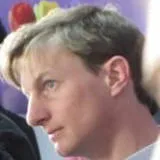Please note: this event has passed
Internal only event
This event is open to staff and students from King's College London.
This workshop will consider how the shifting nature of neoliberal governance has both foreclosed and created opportunities for radical transformation in terms of climate and environmental change. How global and national environmental policies are enacted, how they both reproduce and resist wider currents of neoliberal governance, and what this means for marginalised communities hit hardest by climate impacts will all be examined in a comparative manner.
The first paper consists of an extract from Erica Borg’s co-authored book on Mutant Ecologies: Manufacturing Life in the Age of Genomic Capital. The extract, entitled “Neoliberal Eugenics: Human capital in the genetic supermarket,” engages with neoliberal thought and considers how it spurred an increasingly influential ‘liberal eugenics’.
The second paper, a co-authored contribution from Erik Swyngedouw, is entitled “Enjoying Climate Change: Jouissance as a political factor”. The paper engages with the Lacanian notion of jouissance as a way of thinking beyond the current climate deadlock, framing enjoyment as a political factor.
While Luis Andueza will serve as a discussant at the workshop, we encourage all workshop participants to read the papers beforehand and to contribute to the discussions. Please email Alex if you wish to attend and he will send on the two drafts (which are currently not for wider circulation).
Coffee and snacks will be served at the workshop and attendees are welcome to join us for dinner and drinks afterwards.
Speakers and discussants
- Speakers: Erica Borg (King’s College London) and Erik Swyngedouw (University of Manchester)
- Discussant: Luis Andueza (University of Aberdeen)
- Workshop lead: Alex Loftus (King’s College London)
About the “End of Neoliberalism?” workshop series
As we begin to emerge from the worst impacts of the global Covid-19 pandemic into a decade that is unarguably crucial for action on the climate crisis, there is clear evidence of a shifting, in some cases even transforming, relationship between states and society. As death rates soared during the pandemic, state interventions in the economy took novel forms, partly oriented towards preserving the interests of capital, and partly towards preserving human life through numerous lockdown and public health policies. This dual dynamic, combined with a seeming shift in state-society relations, has led critical political economy scholars to question whether we are witnessing the end on neoliberalism.
In this respect, The End of Neoliberalism Workshop Series is aiming to bring together scholars and research students from across King’s College, London, to explore crucial questions regarding neoliberalism at different scales, spaces, and times to understand how it has and will progress. A key aim is to break down some of the barriers between our departments and encourage critical interdisciplinary work. The workshop is led by the International Development (DID), Geography, and European and International Studies (EIS) departments, but KCL colleagues from all departments are encouraged to attend should they be interested in critically engaging with these questions. There will be three workshops with different themes, centered around the “End of Neoliberalism” debate, including on the role of the state (March 17th), financialization (April 28th), and the environment (May 19th). In the final workshop, we will wrap up and discuss future steps we can take to deep cross-departmental collaborations on these topics (June 16th). All workshops run from 3-5pm, with post-workshop drinks to follow. This project has funding from the KCL SSPP Faculty Research Fund and is led by Ingrid Kvangraven (DID), Nithya Natarajan (DID), Alex Loftus (Geography), Magnus Ryner (EIS) and Alfredo Saad-Filho (DID), with research assistance from Celal Özkizan (DID)
Event details
6.03Bush House South East Wing
Strand, London WC2R 1AE

